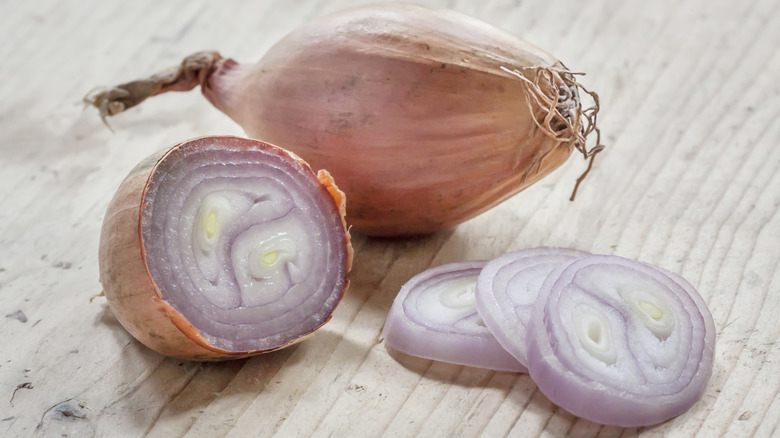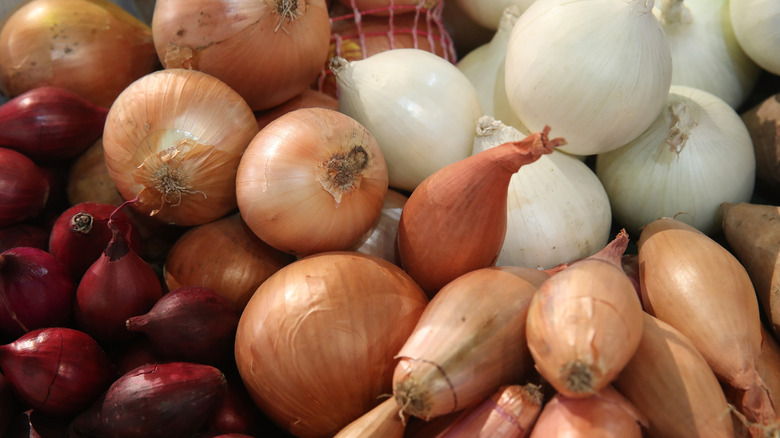Is A Shallot An Onion?
Edible alliums are a wonderful category of plants, which include garlic, onions, shallots, leeks, ramps, and chives — essentially, all the pungently aromatic things that form the base of cuisines worldwide. Although alliums are clearly delicious, they can be a bit confusing. For example, is there a difference between green onions and chives? Why are ramps so trendy? And today's question (which we've all found ourselves contemplating in the grocery store aisle at least once), are shallots just expensive onions? The short answer is yes, shallots are classified as a type of onion. But when you peel back the layers, it's far more complex. Shallots are a member of the species Allium cepa, a category that also includes all your favorite onions, from pearl to sweet Vidalia. However, shallots are quite distinct from their Allium cepa brethren in many ways — in other words, they're not regular onions. They're cool onions.
Shallots are also usually smaller, sweeter, and more delicate than onions, with a flavor often described as onion-like but milder and with notes of garlic. These qualities make shallots the perfect elegant allium addition to vinaigrettes, piquant sauces, and savory soups.
The difference between shallots and onions
Although shallots are technically a type of onion, these bulbous alliums have some key differences. The most obvious one is that shallots, like garlic, have multiple bulbs, while most onions consist of a single large bulb. This is why shallots are typically teardrop or crescent-shaped, while onions are round. Another difference is that onions are quite hardy and are cultivated practically year-round in countries worldwide, while shallots require more specific conditions and are much less widely cultivated. Due to this, shallots can cost three times as much as onions, which is certainly enough to give one pause in the grocery aisle.
Although it's totally possible to substitute onions for shallots, it's important to remember that onions are stronger and will change the overall flavor profile. This shouldn't make too much of a difference in cooked dishes but can be more impactful in recipes that call for raw shallots. When substituting onions for shallots, you may also want to add a little garlic to approximate the delicate complexity of shallots.
In conclusion, yes, a shallot is an onion, but it's also so much more than that. While both onions and shallots can make you cry when cutting, shallots bring their own unique qualities to dishes and are a favorite of chefs for good reason. However, if you're in a tight spot, you can totally substitute an onion for a shallot and still achieve that sharply sweet allium flavor we know and love.

